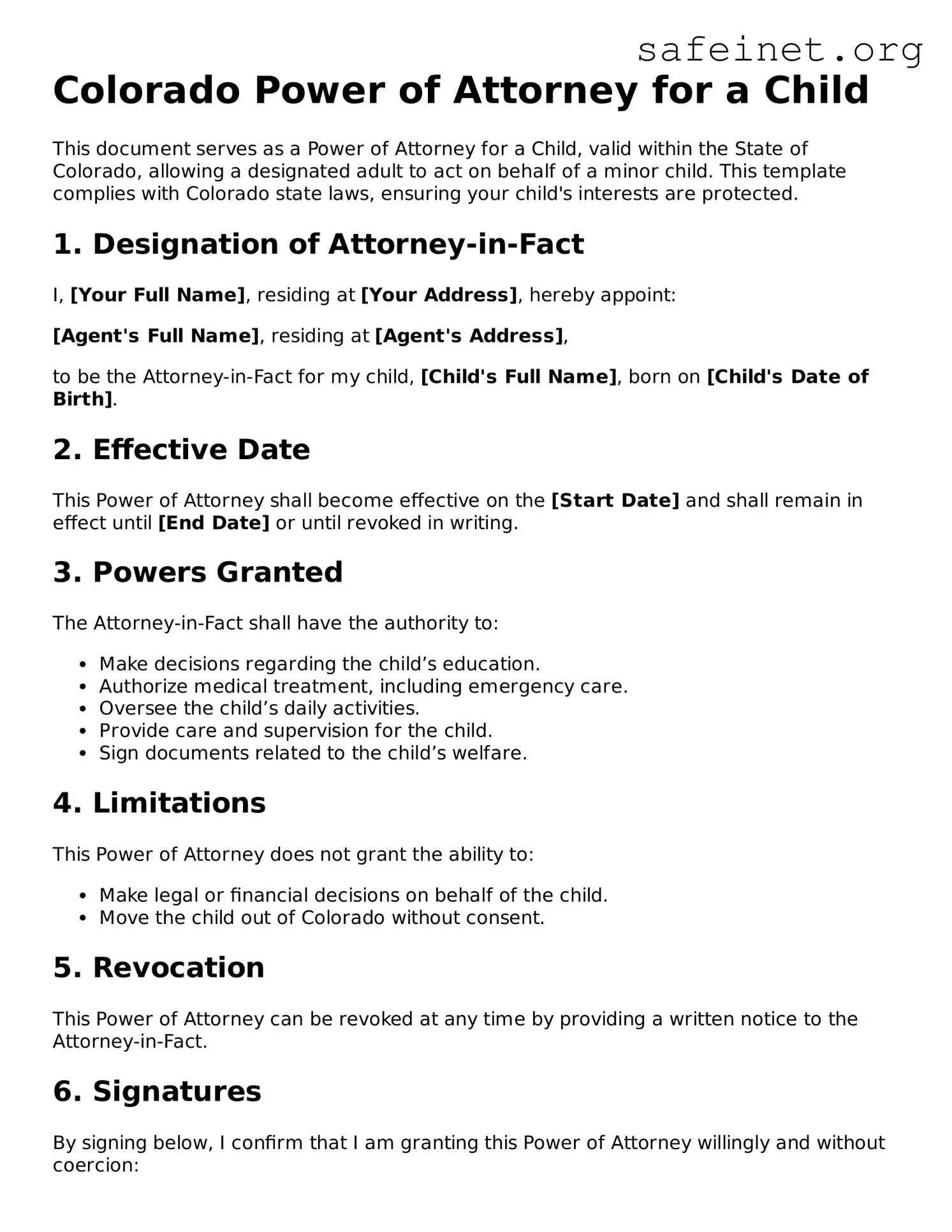Colorado Power of Attorney for a Child
This document serves as a Power of Attorney for a Child,
valid within the State of Colorado, allowing a designated adult to act on behalf of a minor child.
This template complies with Colorado state laws, ensuring your child's interests are protected.
1. Designation of Attorney-in-Fact
I, [Your Full Name], residing at [Your Address], hereby appoint:
[Agent's Full Name], residing at [Agent's Address],
to be the Attorney-in-Fact for my child, [Child's Full Name], born on [Child's Date of Birth].
2. Effective Date
This Power of Attorney shall become effective on the [Start Date] and shall remain in effect until [End Date] or until revoked in writing.
3. Powers Granted
The Attorney-in-Fact shall have the authority to:
- Make decisions regarding the child’s education.
- Authorize medical treatment, including emergency care.
- Oversee the child’s daily activities.
- Provide care and supervision for the child.
- Sign documents related to the child’s welfare.
4. Limitations
This Power of Attorney does not grant the ability to:
- Make legal or financial decisions on behalf of the child.
- Move the child out of Colorado without consent.
5. Revocation
This Power of Attorney can be revoked at any time by providing a written notice to the Attorney-in-Fact.
6. Signatures
By signing below, I confirm that I am granting this Power of Attorney willingly and without coercion:
Parent/Guardian Name: ___________________________
Signature: ___________________________
Date: ___________________________
7. Witnesses
This Power of Attorney must be witnessed by two individuals:
- Witness 1 Name: _____________________ Signature: _____________________
- Witness 2 Name: _____________________ Signature: _____________________
8. Notarization
It is advisable to have this document notarized for further validation:
Notary Public Name: _____________________
Notary Public Signature: _____________________
Date: _____________________
